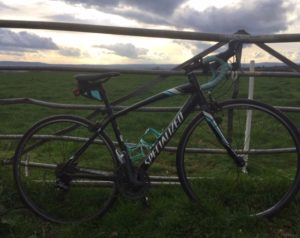
As junior doctors, we often feel there is no time to effect change in a short rotation through a department. Having taken time out of training, I have had the opportunity to witness how change can, and does happen within the NHS. I’ve observed how one inspirational consultant working a rural DGH had the vision to see how processes that have become normality can be challenged.
Out-patient appointments have been around for as long as the NHS. The patient is seen by their GP, a referral is made, and they get reviewed in the shiny hospital by a clever specialist. Doesn’t this sound simple? When you break this process down, there are many steps between the initial consultation and the money-making end-point of being seen by a specialist. On reflection, wouldn’t it be easier to put the specialist with the GP, in the child’s community? This is where Primary Care Paediatrics comes in.
As a trainee, I find out-patient clinics a frustrating experience as I don’t commonly have the opportunity to follow a patient from initial referral through to the final outcome. With consultant supervision and direction, I’ve taken on a group of GPs practices and manage their referrals – providing advice or guidance where possible or arranging to see them in clinic. What a learning experience this has been! I had never appreciated the vast array of queries that GPs handle; from bunions to constipation, rashes to mental health problems. I have a new-found respect for all the things they are managing behind the scenes before they even consider referring a patient acutely. I have developed a huge personal bank of resources to recommend to GPs and parents, and have a new network of helpful physios, biochemists, dermatologists, microbiologists etc to ask for advice.
If more than written advice is needed, but the problem doesn’t require specialist services or long-term management, why can’t the child be seen in a local practice alongside their own GP? My experience is that a lot of these ‘general’ problems are being managed extremely well by the patient’s GP, who may just need a little extra support, or an ‘expert’ opinion to reassure the parents. Often all I do is affirm that the GP is doing what a Paediatrician would do too. I benefit from access to the patient’s previous consultations and local knowledge of any safe-guarding, social or family problems. By having a two-way exchange with the GP prior to a clinic appointment, investigations such as blood tests or ECGs can be done in advance, so the service is more effective.
My experience has shown that families find this service extremely efficient and acceptable compared to traditional out-patient models. They have more time to talk than in a GP appointment, and benefit from expert knowledge if needed, without having to travel or wait months to be seen. For GPs, the collaborative working model allows for sharing of knowledge both ways; making it easier for patients to be ‘discussed’, not just ‘referred’.
I have gained a deeper understanding of the way Primary Care works, and the resources available in the community. I am a geek by nature, and love learning, so the opportunity to expand my knowledge of a great array of conditions has been invaluable. I really enjoy working with GPs and sharing what I have learnt. Unique now to many trainees, I have really appreciated returning to an apprenticeship model, working alongside a consultant colleague I greatly admire and respect. She has taught me to assess the ruts we have got stuck into, to challenge the way things are done, and to ‘Just do it’ when wanting to make a change for the better.
Acknowledgement:
I’d like to thank Dr Sarah Bridges at Musgrove Park Hospital for inspiring me and supporting me while working on this fantastic service. Please contact me on Claire.salter@tst.nhs.uk or @baby_dr_claire if you are interested in this work